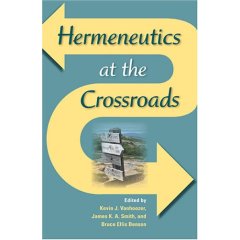A LOVE SUPREME
If you post comments here at Theos Project, please know that I will respond and engage your thoughts in a timely manner.
Friday, September 29, 2006
Tuesday, September 26, 2006
Bringing Sexy Back
So, Justin Timberlake is bringing “sexy” back. Apparently our society is running on a shortage of sexy these days, and J. Timberlake is just the man to bring it back for us.
Of course, this poses the question: What is sexy? This is the same question that floats across the screen of my tv during a Victoria Secret commercial.
“What is sexy?”
It’s the unresolved question hanging out in the void like the various body parts of the models who are displaying their various….er, well, anyway, it’s their version of sexy.
The other night I was playing basketball and blocked my good friend. (I won’t mention that his name is Mike, lest he be embarrassed or otherwise humiliated.) But for me this isn’t really that big of a deal. I mean it is always nice to be able to trash talk each other while we are together as a group of guys, but it has happened so many times that for me it is becoming somewhat routine. This, of course, is due to the Law of Diminishing Returns.
The Law of Diminishing Returns:
In a production system, having fixed and variable inputs, keeping the fixed inputs constant, as more of a variable input is applied, each additional unit of input yields less and less additional output……All righty, then….basically what that is saying is that the more of something you have the less enjoyment you get out of it. Or, the more you do something the less pleasure that it will bring you…
So, let’s go back to “sexy” and Justin Timberlake. Do we really need to bring “sexy” back?
Well, actually this time I’m going to agree with Justin. I think we have completely lost the true sense of sexy. We have sex, but not sexy. We have more sex than we know what to do with. It’s everywhere. Every body part. Every movement and motion. We’ve seen it all. It dominates the visual.
Sex is in our language, too. It saturates our conversations and vocabulary. It finds its way into every comedy routine and into seemingly every sitcom story line.
We can download anything we want in just seconds. Any fantasy world that we want to enjoy is ours for the taking. Imagine, right at our fingertips. It is literally unprecedented that humanity would have the kind of access to sex that we now have today.
But for all the sex there is no doubt in my mind that we have lost the sexy.
The sexy is deeper than sex. Sex is cheap, but sexy is not. Sex for us is about indulging, but sexy is about intrigue.
The truly sexy is a rare thing. It is a stimulation of the physical senses that finds its origins in the intangible and undefined portions of our being. Sexy cannot be completely defined because it starts from someplace so deep that we don’t even recognize where it came from. When sexy is genuine it isn’t something you can completely suppress. It takes a hold of you and it won’t let you go. You may be able to tame it. You may be able to control it within certain parameters, but you can’t suppress it. It is deeply wild and untamed.
Sexy cannot and will not be mastered. To master sexy simply means that you never had it to begin with.
Of course, at this point it is clear that sexy is something that we very rarely find in our lifetime. As I said, it is about intrigue, not indulgence. We can market and sell gratification. We can package and distribute sexual satisfaction. But no one can give you sexy. You can’t buy it at any price. It finds you, but only if you’re lucky.
But what happens if we have it and then lose it? I think this is the easiest thing in the world to do. One reason why it is so easy to lose is because we think that sexy is about sex. We mistakenly think that our sensual stimulation is just another urge to gratify. And hence we can lose the sexy because we have mistake it for another object for our own consumption. But to make this mistake is to lose it.
The sexy is not about gratification. 
It is easy to lose the sexy because we have no idea what to do with it when it comes. We confuse indulgence with intrigue. We have become so accustomed to using sex as gratification that we simply don’t know what to do when sexy finds us.
Sexy must be cultivated. To control it is to lose it. To indulge it is to lose it. But to respect it is to enter into the world of intrigue.
As my grandfather would say, “Leave a little to the imagination!” This is a lost cause in our age, and I doubt very much that Justin Timberlake is, in any way, bringing sexy back. The pop, mass-marketing media that has absorbed simply him wouldn’t let that happen. This is a world of immediate gratification and physical self-satisfaction. It leaves little room for the kind of intrigue and stimulation that lights up the heart, the mind, as well as the eyes.
Posted by
Jonathan Erdman
at
Tuesday, September 26, 2006
2
comments
![]()
Labels: Culture of the gods and (de)fragmented selves, Reflections, Sex and Gender Issues
Monday, September 25, 2006
Qohelet rescues the doctrine of total depravity
For quite some time I have been rather dissatisfied with the doctrine of total depravity. For those of you keeping score at home the doctrine of total depravity basically says that sin affects all aspects of human nature. The name of the doctrine is rather unfortunate because the word "total" in "total depravity" does not mean that human beings are as bad as they could be or "totally" sinful. The "total" in "total depravity" refers to the fact that all of a person's being is affected by sin. In today's language, however this significance is lost...but no matter, this is a side note...
I have had a gripe against this doctrine because it often seems so static. When I hear this doctrine presented it is often just kind of thrown out there: "Human beings are corrupt" or "People are bad." Anytime I have heard this doctrine presented it has left me hanging there - it's a cliff hanger. I usually kind of cock my head to one side, scrunch my face and think, "The world is messed up? People are bad? So, what. That's not news to me or anyone else."
In most situations in which I hear about the doctrine of total depravity this cliff hanger is relieved because the Christian who is explaining the doctrine of total depravity begins to talk about his or her real point, which is the fact that people need Christ. So, most of the time when people talk about the doctrine of total depravity it is a bridge builder: We use it to get to our real point, which is that people need something. But I see this as a problem.
The first thing is that people don't come to Christ unless they see the need for Christ in their
lives. Here's the formula: Needy Me + Christ = Christian. But this compeletly misses the point, because human need (i.e. our own depravity) cannot merely be one of the factors of an equation. To simply say, "Ah, well, ok, I'll add some Jesus to my need" is to miss the point of conversion, which is a deeply spiritual and life-changing event.
So, what do we need here? More than simply acknowledging our personal depravity is the fact that we must feel it. I mean that we need to feel it deep down as a burden ,as a weight that is holding us down and as a cancer that is destroying us. We must feel ourselves on our spiritual death bed in a hopeless state of misery. This is far more than an intellectual acknowledgment of a particular doctrinal point. What we are talking about here is something deeply personal. So deep, in fact, and so personal that it is possible to feel our depravity even if we could not express the doctrine in words or write it out as a theological formulation.
The problem, then, with presenting a static doctrine of depravity is that it seems to suck the life out the Gospel. The doctrine of depravity is something dynamic that we experience and feel on the deepest of levels. Without this feeling, forget it. Move on. Don't waste your time talking about the cure if someone is not sick. Let them live and wish them well in their life! Why try to convince a person to believe, intellectually, a doctrine whose whole point is to feel the doctrine on a spiritual level?
Now, if anyone is going to really feel the doctrine of depravity and if we are to present a doctrine that is dynamic and not static, then we have to camp on it. We have to give pause and truly ponder what it means to live as a depraved person in a depraved world. We have to step back and submerge ourselves in life; to engage in a deeply reflective conversation with our human situation.
Qohelet enters stage right...
This is the whole point of Qohelet (the author of the book of Ecclesiastes) - to examine the human condition. Qohelet is on a quest, and his quest is the quest of all persons: to explore and understand the world. To drink from the wells of experience and to eat at the table of knowledge and understanding. Consider Qohelet's own statement of purpose:
I devoted myself to study and to explore by wisdom all that is done under
heaven. (1:13)
This is Qohelet's quest. And his conclusion quickly follows:
What a heavy burden God has laid on men! (1:13)
Life, as we know it is backwards from what it should be. As Qohelet relates his quest he finds that at every turn there is either frustration or the potential for frustration. The world as we experience it is messed up. It is a burden.
The fascinating thing about Qohelet is how he seems content to just camp on this theme. Many perceive the Bible as a handy answer key to life. A book with all the right things to do and say. But Qohelet shatters this perception of Scripture. With Qohelet we have a whole book of the Bible, twelve chapters in all, that takes the time to discuss all of the worst things about living!
But notice what Qohelet does. He does not simply talk about the bad in you and I, but talks about the system as the world. Life "under the sun" is subject to the worst uncertainties. Our sense of meaning and purpose is frustrated. We seek for more, but there is nothing more to be found. If one reads Qohelet they quickly begin to feel tension and even contradiction. It is a disturbing book, but this is exactly what Qohelet wants us to feel. We must feel the tentions because Qohelet was burdened with these tensions, and so is anyone who begins to live life and seriously examine it from life's many different angles. Life is "crooked." (1:15, 7:13)
The world, as a system, is meangingless and absurd. The word "meaningless" or "absurd" is the word Qohelet uses thirty some times to label various aspects of human experience and situations. (The Hebrew word is hebel (pronounced he-vel).) But after we have camped on the absurdity of the world's system it is quite easy to discuss the depravity of the human being. This is because the depravity in each of us is one of the major contributors to system that is so absurd.
So, what would we do without Qohelet? The doctrine of depravity might possibly become doomed to quipes and cliches. Qohelet opens our minds up to the ramifications of living in a crooked world. We are crooked people in a crooked world.
Sit on that stuff for a while. Discuss Qohelet at the coffee house. Talk about the crooked world of Qohelet and I guarantee you'll generate some chatter. What is there "under the sun" that can be predicted? Where are the easy answers in life? You won't find them in Qohelet.
And now you're ready to talk about total depravity. And then you're ready to talk about the Gospel.
Posted by
Jonathan Erdman
at
Monday, September 25, 2006
4
comments
![]()
Tuesday, September 19, 2006
Do Panda bears commit suicide?
A sleep-deprived panda inadvertently crushed her newborn cub to death at a zoo in China last week. "Pandas who lose their young tend to be depressed for a month or so," said a
zoo official. "Yaya appeared to be so sad when she couldn't find her baby. …Tears could be seen in her eyes."In the past I used to think a great deal about what, exactly differentiates human people from the animals. I used to think it was the fact that animals didn’t commit suicide. Human beings seem to desire to reach out for more than what the material world can offer; that we are spiritual and thereby have a yearning for something deeper from life.
Subsequently, I have found that there are plenty of people content to submerge themselves in the material world and carry about their life as though they were animals – even worse than animals sometimes…and now I find out that animals have a psychological side!
Well, I guess I’ll have to rethink this one a bit…What separates the person from the animal???
Find the slate article cited above here:
http://www.slate.com/id/2149682/?GT1=8592
Posted by
Jonathan Erdman
at
Tuesday, September 19, 2006
4
comments
![]()
Labels: Culture of the gods and (de)fragmented selves, Flavors of life
Thursday, September 14, 2006
On Writing Theology
Posted by
Jonathan Erdman
at
Thursday, September 14, 2006
1 comments
![]()
Labels: Flavors of life, Theology
Tuesday, September 12, 2006
Bring back the old school style!
Posted by
Jonathan Erdman
at
Tuesday, September 12, 2006
2
comments
![]()
Labels: Flavors of life
Monday, September 11, 2006
9/11 Remembered


United States v. Zacarias Moussaoui Criminal No. 01-455-A Prosecution Trial Exhibits Exhibit Number P200336 Description - Collection of photographs of those killed (except for 92 victims) during the terrorists attacks on September 11, 2001
Posted by
Jonathan Erdman
at
Monday, September 11, 2006
1 comments
![]()
Labels: Reflections
Wednesday, September 06, 2006
Kevin Vanhoozer - "Discourse on Matter"

Kevin Vanhoozer is an editor of a new collection of essay's on hermeneutics. His essay is particularly fascinating and I have interacted with it in depth here:
http://erdman31.googlepages.com/Review-Vanhoozer-DiscourseonMatter.pdf
Here is my brief summary of Vanhoozer's article:
Vanhoozer raises a critical question for hermeneutics and biblical interpretation: To what extent are we active in the process of interpretation, and to what extent are we passive? Another way of putting the question is: Is interpreting the biblical text something I have control of, or is there a more mystical and intangible element at work. The intangible element is represented by the school of philosophical hermeneutics.Vanhoozer shows that philosophical hermeneutics, represented particularly by Hans-Georg Gadamer, appeals to a mystical or even a “miracle” element in the nature of understanding. Vanhoozer takes seriously the contribution of philosophical hermeneutics and finds a similarity with the thinking of Karl Barth. Vanhoozer, however, adds a distinctively Christian twist to what he perceives as secular hermeneutics. The twist is that rather than appealing to the mystical or the miracle element, as Gadamer had done, Vanhoozer employs Christian theological categories like “grace,” “illumination,” and the activity of being “in Christ.”
Here are the first few paragraphs from my in-depth interaction that I noted above:
I find Vanhoozer’s recent essay on understanding to be a very critical and important work for hermeneutics in general and for biblical studies in particular. Vanhoozer raises a fundamental question for interpretation and understanding, a question that has been kicking around here and there for the past century or so in one way or another amongst scholars and academics, not the least of which are the likes of Hans-Georg Gadamer and Karl Barth. Vanhoozer clearly articulates this question and seeks to explore the answer within a distinctively Christian framework.
The question goes as follows: “Is understanding a type of active mastery or a passive happening? Is it something the interpreting subject does, or is understanding done to the interpreter by the subject matter."
This has been a critical question in my mind for several years and I believe it has critical ramifications for biblical studies on all levels: from the most erudite and academic considerations to the most practical interactions of pastors and teachers within the local church setting. The question centers on the extent to which we as interpreters have control over the process of understanding and the extent to which we, ourselves are actually controlled by the biblical text. Are we in control of the Scripture, or do the Scriptures control us?
If we are the masters of interpretation, does this mean that biblical interpretation is strictly a matter of applying the right rules and procedures? Can we gain understanding by simply applying the right method of interpretation? Or is there something more – something intangible that is at work in this process of understanding the written Word of God?
Citation:
Kevin Vanhoozer, “Discourse on Matter: Hermeneutics and the ‘Miracle’ of Understanding,” in Hermeneutics at the Crossroads, ed. Kevin J. Vanhoozer, James K.A. Smith, and Bruce Ellis Benson (Bloomington and Indianapolis: Indiana University Press, 2006).
Other essays reviewed in Hermeneutics at the Crossroads:
Bruce Ellis Benson "The Improvisation of Hermeneutics"
James K.A. Smith "Limited Inc/arnation"
Kevin Vanhoozer "Discourse on Matter"
Nicholas Wolterstorff "Resuscitating the Author"
Posted by
Jonathan Erdman
at
Wednesday, September 06, 2006
1 comments
![]()
Labels: Hermeneutics, Hermeneutics at the Crossroads, Reviews










